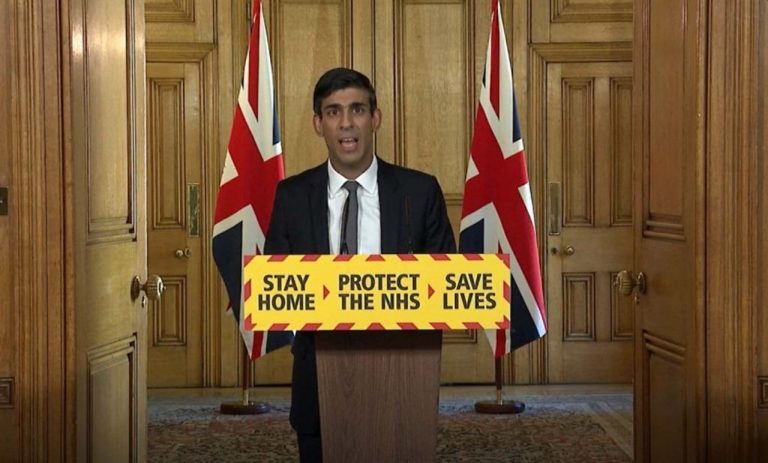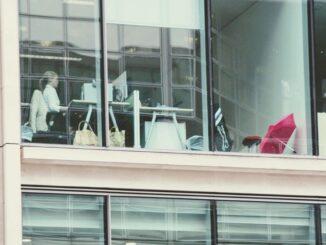The UK could face the biggest economic crisis since the world war, there could be 2 million job losses and pay cuts.

Topics covered
Treasury forecasters fear the economy faces its worst slump on record. Chancellor Rishi Sunak has said it is “not surprising” that the UK is facing its biggest economic slump in 300 years. As the UK death toll hit 12,107, the full scale of the Covid-19 meltdown emerged in government figures which predicted the country’s economy may be slashed by a record 35 percent by June.
The consequences of all this could be 2 million job losses and pay cuts.
- READ MORE: Covid: how to make a surgical mask at home
- READ MORE: Covid: how to make a hand sanitizer at home
Britain warned of job losses and pay cuts
Unemployment could jump to 3.4 million and the deficit may spiral to £218billion this year. Produced by the Office for Budget Responsibility, the figures predict the worst GDP slump in a single quarter since records began in 1908. Separately, The International Monetary Fund warned the global economy will suffer its deepest plunge since the Great Depression of the 1930s.
The Chancellor said this afternoon: “This is an unprecedented time and unprecedented crisis and that called for an unprecedented economic response. So in that sense, it is not surprising to see some of these figures, as it’s unlike anything we’ve dealt with before. “It came as desperate small firms begged the Chancellor to speed up his bailouts.
Many firms face going to the wall in ten days’ time if they cannot pay staff wages. Senior Tories joined Labour to call on Mr. Sunak to turbocharge the sluggish delivery of loans, wage support, and grants. Westminster was stunned yesterday by the independent Office for Budget Responsibility’s projection that the economy could shrink by 35 percent if the Covid-19 lockdown continues for three months.
Some comparison
The retraction would be the biggest slump in a single quarter since 1720 when the catastrophic shares crash known as the South Sea Bubble rocked the nation. It would dwarf anything seen in either world war or the Wall Street Crash of 1929 which led to the Great Depression. The Covid-19 aftershock could also eclipse the Spanish Flu pandemic in 1918, the energy crisis in the early 1970s and the financial crash of 2008. Mr. Sunak insisted Britain could bounce back quickly once the lockdown was lifted.
But he conceded: “This is going to be hard. If we hadn’t done these things, it would mean that things were a lot worse”. The OBR warned of an unemployment peak of 3.4million in the summer and said the jobless total will still remain above two million throughout this year and 2021. Average wages will plummet by 10.6 percent this year, it said. The forecast warned that hit on public finances from lost growth will also be huge.
Government borrowing to keep the economy afloat will rise by an extraordinary £218billion this year to £273billion. This is the largest annual deficit since World War Two. The UK’s total national debt will rise above 100 percent of GDP, a traditional red-warning light. The OBR’s prediction of a quick recovery by year-end was blasted by some analysts as too positive. It is also warned instead of an “L shaped” recession where the economy takes several years to recover.
Deep recession for the UK and global economy
The British Chamber of Commerce reveals today that 66 percent of businesses surveyed have furloughed staff to get 80 percent of wages paid by the Government. Director-General Dr. Adam Marshall said: “Businesses on the front line need cash to start flowing from support schemes fast. With April’s payday coming up, we are fast approaching a crunch point, and both the furlough scheme and loans need to be accelerated. It is essential that the Job Retention Scheme makes payments to businesses as soon as possible. Any delay could mean more livelihoods under threat.”
It predicted the global economy would shrink by three percent this year. It means dwarfing the 0.1 percent contraction seen at the height of the financial crisis in 2009. In January, it had forecast a 3.3 percent growth for the global economy this year. It now expects the UK economy alone to contract by 6.5 percent in 2020. Chief economist Gita Gopinath warned: “This crisis is like no other”. She added: “This is a deep recession. It is a recession that involves solvency issues and unemployment going up substantially and these leave scars.
Like in a war or a political crisis, there is continued severe uncertainty about the duration and intensity of the shock.” A lengthier pandemic could knock another three percent off output (as measured by GDP) this year, while a return of the virus next year would wipe eight percent from 2021’s economy. The IMF said: “Many countries face a multi-layered crisis comprising a health shock, domestic economic disruptions, plummeting external demand, capital-flow reversals and a collapse in commodity prices. Risks of a worse outcome predominate.”









